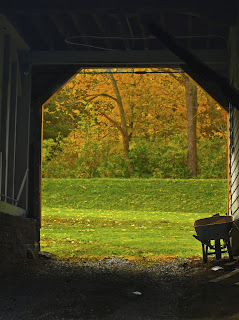1 Tim 1:12-17
Ps 16
Lk: 6:39-42
The first stanza of one of the English speaking world’s
greatest, most well-known, and oft-sung hymns says it all.
“Amazing grace
How sweet the sound
That saved a wretch like me
I once was lost but now I’m found
Was blind but now I see”
The words were written in 1772 by John Newton who had the same
epiphany while aboard a ship that Paul describes in the letter to Timothy. Both men realized their blindness and
fundamental unworthiness.
Weirdly enough, there are other versions of the hymn that
replace the word wretch with the non-judgmental and vaguely self-affirming term
soul, or the thoroughly pallid and limp-wristed “that saved and set me free.” It appears that the revisionist lyricists are
trying to deny the reality that we are sinners in need of forgiveness and redemption. They apparently understand the human
condition in the same way that Garrison Keilor describes Lake Woebegone, “. . .where all the men are strong, the women
good-looking, and the children above average.”
That we are wretches in need of saving is beyond debate. But we are wretches who are loved and
passionately pursued by God, who loved us first, and continues to love us.
The letter to Timothy gets it right—as does Newton’s
original lyric of Amazing Grace. “I was
once a blasphemer and a persecutor and arrogant. But I have been mercifully treated.” We too have been mercifully treated. The only thing asked in return is gratefulness
and praise such that we sing with the psalmist:
“I bless the Lord who counsels me;
even in the night of my heart
exhorts me.
You will show me the path to life,
fullness of joys in your presence
the delights at your right hand forever. “
______________________________________________________________________
Autumn. It is coming. Despite two days of very hot weather, fall is coming to New England. There are a few isolated areas of brilliantly colored leaves along my usual travel paths to BC or Newton-Wellesley Hospital (a place I've been visiting way too often of late). Last night's deluge dropped the temp about twenty degrees. Weather is going to be splendid for the wedding tomorrow. Eight days to go until I go on my vow retreat. Listen carefully at noon on Saturday 21 September. The sigh will be heard throughout the east coast as I pull out to drive west for a few hours. I'd hoped to go to St. Vincent Archabbey in Latrobe, PA for the retreat. I've been there twice before. The community is very welcoming, the setting is rural western PA and I always pass through State College on the way back. However, whereas it was just over 4 1/2 hours from D.C., it is a very long drive from Boston. More than I can manage at this point. Below are some photos from the archabbey (St. Vincent was the first Benedictine Monastery in North America).
The Grist Mill is across the road from the main abbey grounds. Until recently there was a coffee shop in the back. Alas, I've heard it has closed. Pity. The coffee at meals in the abbey is not all that good. One of the treats I gave myself during retreat was to go down there every afternoon for a gigantic strong coffee drunk either inside or on the patio. I was generally the only customer there. That explains a lot about why the place is closed.
This wheelbarrow was under the grist mill just to the left of the patio. The sun was hitting just right on a late October afternoon.
A very close-up of a red leaf.
St. Vincent Seminary is on the grounds of the archabbey. This is the view through the front door.
The Archabbey was established in 1846. There are many rows of crosses in the monks cemetery.
The vesting sacristy. The monks wear cowls and stoles when concelebrating. These are not easy to get into. I had more than a little trouble with the hood when I made a retreat there after ordination to the priesthood. I made a retreat there a few weeks before being ordained a deacon. Got out of the car and saw a monk coming out of the enclosure. As I had no idea what to do next I hailed him and introduced myself. He noted they were expecting me and added that it was too bad my name was spelled with an A (Saberski) rather than an i. I noted it was misspelled on the board and the spelling with an i was indeed correct. He then asked if I new Dominic Siberski. After getting my breath back I noted that yes I did and, in fact, he was my father. It turns out that he was from the Georgetown section of Wilkes-Barre, went to school with one of my cousins and somehow knew dad. As dad had been dead for over thirty years at that point it was something of a surprise.
The holy oils. The church is huge. I hope to go back some time with a tripod for some real photographic fun.
+Fr. Jack, SJ, MD







.jpg)
.jpg)






